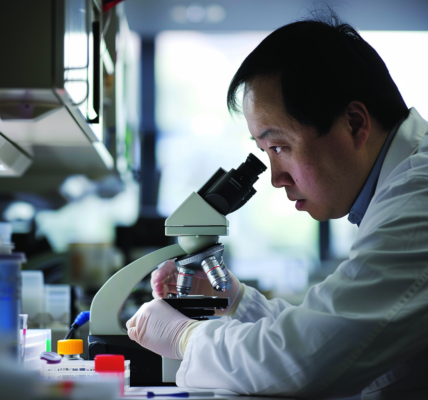The intricate world of the human microbiome has long fascinated scientists due to its significant impact on health and disease. Recent advancements in single-cell genomics have opened new avenues for understanding this complex ecosystem, revealing insights that traditional metagenomics could not achieve.
Researchers at Waseda University, led by Associate Professor Masahito Hosokawa, have developed a pioneering single-cell genomic approach in collaboration with bitBiome, Inc. This innovative method allows for the analysis of individual cells, offering a more detailed perspective on microbial diversity and genetic traits, particularly those related to antibiotic resistance.
Published in the journal Microbiome on October 2, 2024, the study addresses the limitations of conventional metagenomics, which often struggles to resolve microbial diversity at the strain level. The new single-cell genome approach promises to enhance our understanding of how bacteria interact, exchange genetic material, and contribute to human health outcomes.
“The limitations of metagenomics inspired us to develop a new approach to explore the human microbiome at the single-cell level,” stated Hosokawa. “This single-cell genome approach can enhance our understanding of how bacteria interact and exchange genetic material, including antibiotic resistance genes, providing deeper insights into human health and disease.”
To conduct their research, the team analyzed microbial samples from 51 participants, collecting saliva and fecal samples to perform a novel single-cell genome analysis method known as SAG-gel technology. This technique, commercialized as bit-MAP® by bitBiome, Inc., involves encapsulating individual bacteria in a gel, allowing for the amplification and individual analysis of their genomes.
Using this advanced methodology, the researchers successfully recovered genomes from 300 bacterial species that traditional methods had overlooked. The study also provided enhanced insights into antibiotic resistance genes, gene exchange networks, and the interactions among diverse bacterial populations.
“Our study analyzed 30,000 individual genomes of oral and intestinal bacteria, which is the world’s largest genome dataset, showcasing the power of single-cell genomics in elucidating microbial diversity and interactions,” Hosokawa remarked.
The implications of this research are vast. In the realm of public health, the detailed profiling of antibiotic resistance genes is crucial for developing targeted and effective treatment strategies. By understanding the genetic makeup of these microbes, healthcare professionals can better prevent diseases, reduce healthcare costs, and ultimately improve public health outcomes.
Moreover, single-cell genomics holds promise for environmental monitoring. The ability to track genetic changes in microbial populations can aid in assessing ecosystem health and resilience, providing valuable data for environmental conservation efforts.
The study’s findings underscore the transformative potential of single-cell genomic technologies in microbiome research. By offering a deeper understanding of microbial interactions and genetic diversity, this approach paves the way for future breakthroughs in health, disease prevention, and environmental sustainability.
As the field of microbiome research continues to evolve, the integration of advanced genomic techniques will undoubtedly play a pivotal role in unraveling the complexities of the human microbiome and its influence on our overall well-being.





